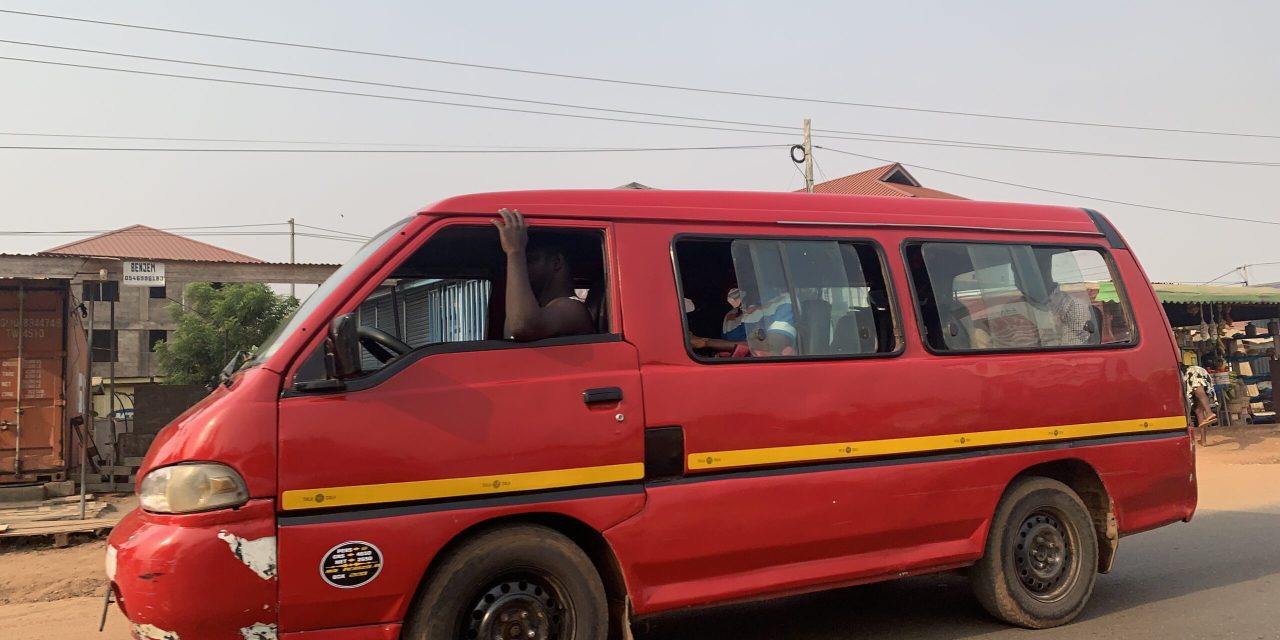In Ghana, using public transit is more than simply a means of transportation—it’s a cultural encounter that provides an insight into Ghanaians’ everyday lives. The backbone of the nation’s urban and rural transportation systems are taxis and tro-tros, which offer accessible and reasonably priced modes of transportation. However, it’s essential to know the dos and don’ts of operating these commercial vehicles to guarantee a hassle-free and enjoyable trip. This post offers a thorough how-to guide to assist you respectfully and easily use Ghana’s public transit system.
The dynamic West African country of Ghana is well-known for its friendly citizens, vibrant cities, and rich cultural heritage. The street-crossing Tro-Tros and Taxis, which carry millions of passengers every day, are two of Ghana’s most recognizable metropolitan elements. Comprehending the protocol and realities of operating these business cars is crucial, regardless of your status as a resident or guest. By going over the important dos and don’ts, you can make sure that your trip is both effective and considerate to the local way of life.
DOS
Extend a warm greeting to the driver and other passengers:
In social interactions, greetings hold significant value in Ghana. You should always say hello to the driver and other patrons as you get into a taxi or Tro-Tro. In order to create a welcoming environment, a simple “good morning” or “good afternoon” (maakye or maaha) might be quite helpful. Kindness is highly regarded by Ghanaians, and a cordial welcome can start a journey that is enjoyable.
Get the Correct Fare:
In Ghana, it’s important to pay the exact fare when taking public transit. Drivers of taxis and tro-tros may not have change for big amounts because they frequently operate on a cash basis. Car
ry exact change and tiny denominations whenever you can to avoid difficulty. Find out the typical fare for your journey by doing some research online or asking about. This will expedite the payment process and help you avoid overpaying.
Do Safeguard Your Personal Property:
Whenever using any kind of public transportation, safety is the top priority. Maintain the proximity and security of your personal items, including purses and gadgets. If you want to lower the chance of theft, keep precious objects hidden. Opting for a crossbody purse or backpack that fits comfortably in your lap or beneath your arm is highly recommended. You may travel in peace of mind by paying attention to your surroundings and your possessions.
Show respect and exercise patience:
Delays and traffic jams are frequent occurrences on Ghanaian public transit. It’s critical to exercise patience and show consideration for the driver and other motorists. It can be tense when someone complains aloud or expresses frustration. Rather, connect with the local culture and accept the journey as a part of the experience. Everyone will appreciate the trip better if they have patience and an optimistic outlook.
Do Adhere to Local Traditions:
Due to Ghana’s rich cultural history, it is imperative that you observe local traditions when utilizing public transit. For instance, it’s considerate to offer your seat—typically the front seat—to elderly, expectant, or disabled guests. Furthermore, modest attire and civil conduct are valued. Respecting the local way of life will improve your trip and demonstrate your regard for the community.
Be Ready to Stop:
It’s crucial to give the driver advance notice when you’re almost there. To signal their want to get off a Trooper, passengers usually yell “bus stop” or knock on the roof. A seamless escape from a taxi can be ensured by simply telling the driver a few minutes in advance of your stop. Prepare to disembark as soon as possible to prevent slowing down the car and delaying other
passengers.
DON’TS
Avoid blocking the exit or aisle:
For everyone’s convenience and safety, the aisle and exit spaces must remain clear. Do not store your goods or baggage in these areas. Try to place bulky items under your seat or hold them on your lap if you are carrying them. It is easier to move around and evacuate quickly in the event of an emergency when the aisles and exits are clear of obstructions.
Avoid Disputes About Fares:
Disagreements over fares can be upsetting and unpleasant. It’s advisable to clarify the fare with the driver before beginning your trip to prevent disputes. If you think the fare is too high, ask nicely for further information or choose a another route. Getting into loud, passionate debates about fares can be disruptive and draw unwelcome attention. Negotiate fares with calm and respect at all times.
Avoid Eating or Drinking in the Car:
Generally speaking, it is not recommended to eat or drink in taxis or tro-tros. Crumbs and spills can cause a mess and annoy other travelers. Strong culinary smells can sometimes be uncomfortable in small spaces. It’s better to eat or drink anything you need to before or after your trip. Keeping things tidy and being considerate of others makes traveling more enjoyable.
Avoid Having Loud Conversations:
Since public transit is a shared area, loud talk may annoy other riders. If you’re talking to friends or on the phone, speak quietly. If a lengthy talk is necessary, you might want to wait until you get to your destination. Encouraging others to respect their privacy and quiet time makes the atmosphere more cozy for everyone.
Pay Attention to Safety Regulations:
Passengers are protected by safety rules in Ghana’s public transportation network. When a seatbelt is offered, always use it, and pay attention to whatever directions the driver gives you. When driving a Tro-Tro, you should not stand or lean out of the window. Following safety procedures not only keeps you safe but also keeps other passengers safe.
Avoid Littering:
Littering is a serious environmental problem in Ghana as well as many other countries. Hold onto any rubbish you want to get rid of until you find a suitable trash can. When getting out of the car, try not to discard litter or leave anything behind. Being aware of your garbage shows respect for the community and contributes to maintaining a clean environment.
Getting around in Ghana’s taxis and tro-tros may be a gratifying experience that provides insight into daily living and the local way of life. You can make sure that the trip goes well and with respect by adhering to some important dos and don’ts. Simple actions that make a big difference include smiling at other drivers and passengers, paying the correct fee, protecting your items, and exercising patience. Comparably, abstaining from actions such as obstructing exits, quarreling over prices, eating in the car, and disobeying safety rules will make the trip more enjoyable for both you and other passengers.
Accepting these rules not only improves your experience personally but also demonstrates your respect for Ghanaians and their culture. You can maximize your experience using Ghana’s dynamic public transportation system by being aware of and following these dos and don’ts, whether you’re traveling to work, seeing new places, or just enjoying the ride.
BY: APPIANIMAA MERCY





